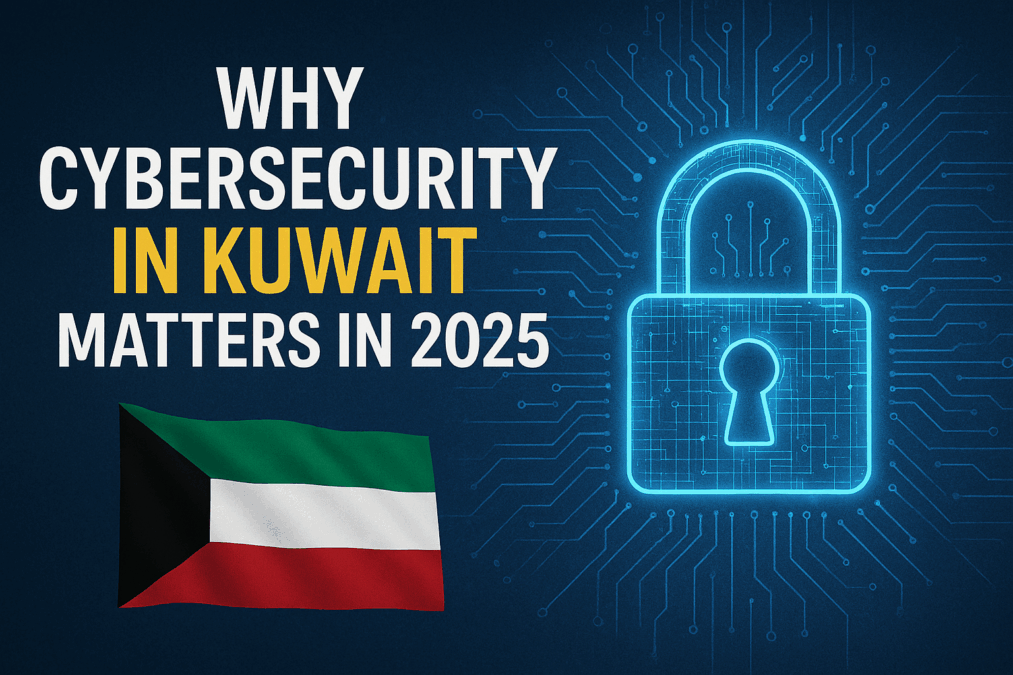In recent years, Kuwait has seen a sharp rise in online scams and digital fraud cases. Many users report receiving fake messages, social media links, and emails that appear to be from legitimate organizations such as banks, courier services, or telecom companies. These scams often include urgent warnings, fake prize announcements, or account-verification requests that trick victims into clicking links or sharing private information.
What makes these scams so dangerous is how realistic they look. Scammers use the same logos, tone, and even language used by trusted brands. Once a user clicks a malicious link or enters their details, hackers gain access to sensitive data such as passwords, ATM card numbers, or ID information. For this reason, Cybersecurity in Kuwait is now a national concern, and awareness has become essential.
Why Cybersecurity in Kuwait Is So Important in 2025
Experts in Cybersecurity in Kuwait predict that 2025 will bring even more complex threats. As people rely heavily on smartphones for daily transactions — from online shopping to money transfers — hackers are focusing on mobile devices as an easy entry point. Small businesses are also at high risk since many lack dedicated IT teams or advanced security systems.
Weak passwords, outdated software, and careless clicking habits remain the most common causes of security breaches. Many users still use simple passwords like “123456” or their names, which can be cracked in seconds. Furthermore, phishing links on social media and fake investment ads continue to lure people into losing their money.
Simple Ways to Improve Your Cybersecurity in Kuwait
The good news is that protecting yourself online doesn’t require expensive tools — just smart habits. Here are some essential steps to strengthen your Cybersecurity in Kuwait and reduce your risk:
- Use Strong Passwords:
Always create passwords using a combination of upper- and lower-case letters, numbers, and special characters. Avoid using personal details such as your birthday or phone number. Consider using a password manager to store and generate secure passwords. - Avoid Public Wi-Fi for Banking or Sensitive Logins:
Public Wi-Fi in cafes or malls may seem convenient, but it’s a hotspot for hackers. They can intercept your data while you’re connected. Use your mobile data or a trusted private connection when accessing financial accounts or confidential work platforms. - Verify URLs and Messages:
Before entering any login information, check the website’s URL carefully. Fake websites often use slightly altered spellings (like “kuewaitbank.com” instead of “kuwaitbank.com”). Be cautious of messages with grammatical mistakes, urgent requests, or too-good-to-be-true offers. - Install Antivirus Software and Keep Devices Updated:
Reliable antivirus software can detect and block suspicious activity before damage occurs. Also, make sure your phone and computer software are always updated — security patches released by companies fix known vulnerabilities. - Enable Two-Factor Authentication (2FA):
This adds an extra layer of security by requiring a verification code (usually sent to your phone) in addition to your password. Most major platforms — like Gmail, Instagram, and banking apps — support this feature. - Be Cautious on Social Media:
Cybercriminals often use personal information from social profiles to target victims. Avoid oversharing personal details and do not click on unknown links or investment offers circulating online.
Final Thoughts
As the digital world continues to evolve, so do cyber threats. But by following simple precautions and staying informed, you can significantly reduce your risk. Cybersecurity in Kuwait is more than just technology — it’s about habits, awareness, and collective responsibility.
By taking small steps today, you can avoid major risks tomorrow. Stay alert, verify before you trust, and always prioritize your online safety. The more aware you are, the more secure your digital life will be in 2025 and beyond.







